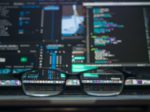
Biotechnology and Artificial Intelligence
Many people can’t differentiate between genes and jeans or might think stem cells is a line of new products from Eveready torchlight cells makers. Unless you are a Life Sciences graduate or a mastermind in making, it is bound to split your grey cells. After all, it’s all in our genes not to know something until we learn about it. The Biotech industry is not immune to software and technological advancements. In fact, the use of new technologies like artificial intelligence (AI) has gradually begun to revolutionize research activities in the industry. Major advances in science and technology are also likely to improve diagnosis and treatment in the future.
The branch of information science dealing with intelligent machine building, helping us in efficient development is what Artificial Intelligence means. Research associated with Artificial Intelligence is highly specialized and technical.
Artificial Intelligence has now made a space into the biological world, proving it’s worth with exciting and new built-up techniques.
Biotechnology is a general term describing the direct modification of biological processes. This may be achieved by introducing new genes into organisms, breeding organisms to form new variants, or treating organisms with specific admixtures. Modern biotechnology has leaped to highly advanced gene technology and beyond, and is an interdisciplinary subject.
With new technologies and enhancements there has been an enormous number of accomplishments in the medical and research industry and with this development, there has been huge progress in the research sector.
One disputed, but widely known issue that is the result of advances in biotechnology is Cloning. Criticized as unethical and capricious, cloning has become a Pandora’s Box ever since the first animal clone, Dolly, the sheep that was successfully created at Roslin Institute, Edinburgh in 1997.
What exactly is biotechnology mixed with Informatics?
The alliance between IT and biotechnology is called as bio-informatics, as explained by a structural biotechnology professor at Cambridge University. It requires a proper set of skills and knowledge to work on bioinformatics to operate the tools and the software.
Over the past few years, Artificial Intelligence and Machine Learning have started snooping in the biotech and pharma industry.
With time we can see the partnership between big pharma and technology and then their indulgence with the Machine Learning and Artificial Intelligence for drug discovery and other purposes. Positive results have already started coming with this joint venture between them.
So now the question here is, what exactly is the role of AI, now and in the future of biotech?
The most exciting advances using Artificial Intelligence in biotech has been Drug Discovery.
Young startups and pharma companies have already started forming up partnerships for the development of new, cheap and cost-efficient drugs.
Companies like BenevolentBiIO use AI to pore over large existing scientific data.
Companies like AIcure, AlphaGoZero, SOPHia Genetics have created unbelievable products using Artificial Intelligence. Here’s a brief introduction on what they have actually created using Artificial Intelligence.
AIcure: they have created an app that uses AI to determine if and when a patient takes a pill. As a patient, you would open the app, hold the phone up to your face, open your mouth, put the pill in, swallow, and open your mouth again to show the AI that you’ve taken the pill. Problem solved.
This helps to keep a record if the patient forgot to take the medicine or is lying during clinical research.
AlphaGo: Zero Created by DeepMind, an AI company owned by Alphabet Inc., AlphaGo Zero is the latest and greatest in self-taught software using no human-derived datasets for learning. Being able to predict how a protein is folded, and thus determine the 3D structure, is extremely important when developing new drug therapies. Most drugs work through a physical interaction with a protein within the human body, either activating or inhibiting it. For this interaction to occur, the drug must be extremely precise in where it binds to the protein, and a protein structure must be known. Unfortunately, very few proteins have a known 3D structure. The current method for finding the structure is through a technique called crystallography, which has an extremely low success rate. Thus far, even supercomputers have failed to virtually predict the structures of proteins. If AlphaGo Zero is successful, it will revolutionize drug discovery.
SOPHiA Genetics– SOPHiA is what SOPHiA Genetics calls their collective AI used for genomics analysis of next-generation sequencing (NGS) data from hospitals and research institutions worldwide.
When sequencing an individual’s genome, accuracy is crucial. A sequence with just one mistake in a critical spot could drastically change a diagnosis. The availability of a dependable, easy-to-use, and standardized NGS data analysis platform is an essential piece to complete the promise of precision medicine, which relies on matching a therapeutic to a specific gene signature for maximal efficacy.
The above are just a few examples of biotechnology with Artificial Intelligence. There are much more in the list and many more are yet to come.
Thus, AI is going to make a mark in the biotech industry in the coming years and would be staying there forever with it’s a markable presence. The AI biotech companies are still being formed and for good reasons. The future of the biotech industry has been stabilized for now.
